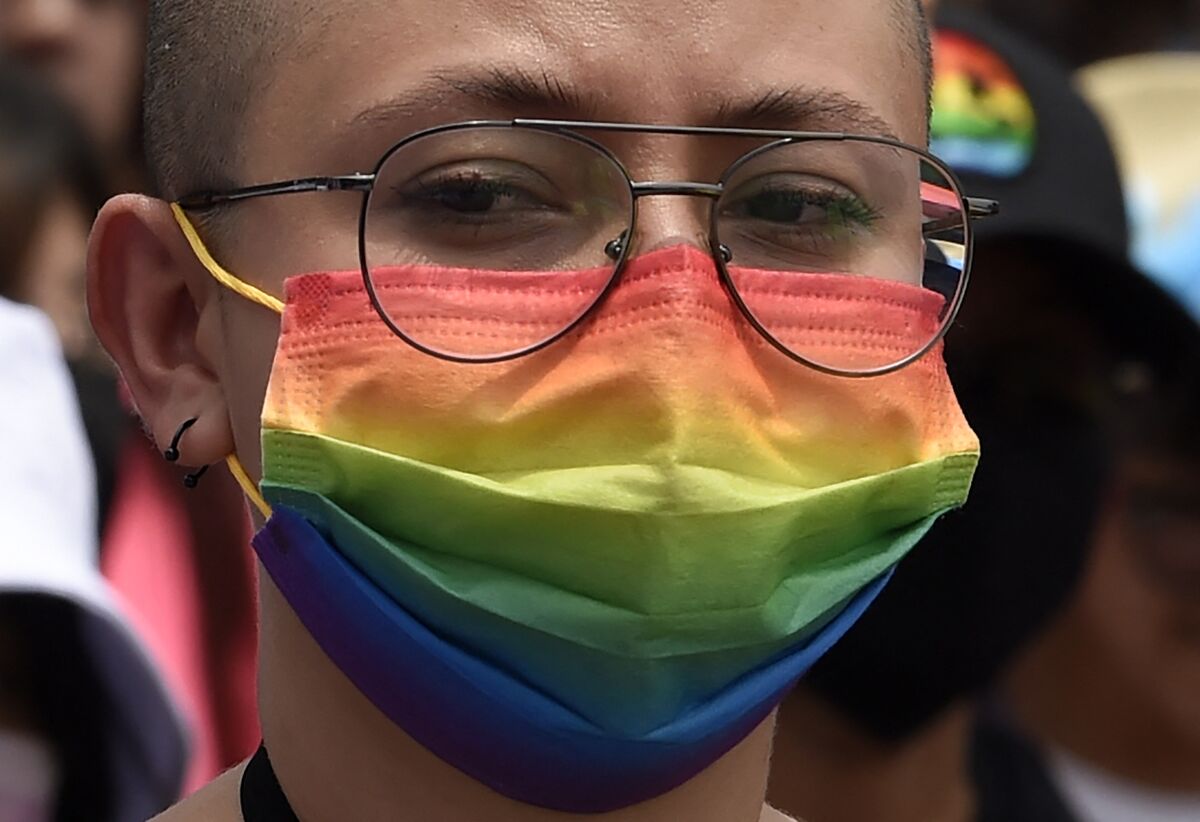Targeted: How Political Movements Are Challenging LGBTQ Healthcare Rights
Health
2025-04-10 11:00:11Content

In a controversial move that has sent shockwaves through the research community, the Trump administration has abruptly halted critical funding for studies examining social and health disparities affecting vulnerable populations. These canceled grants represent more than just lost financial support—they signify a significant setback in understanding and addressing systemic challenges faced by marginalized communities.
Researchers who have dedicated years to meticulously documenting inequalities in healthcare, education, and economic opportunities now find their vital work suddenly derailed. The sudden withdrawal of millions in research funding means that groundbreaking insights into community well-being have been silenced, potentially leaving critical social issues unexplored and unaddressed.
The impact extends far beyond academic circles. These interrupted studies were poised to provide policymakers with evidence-based strategies for improving quality of life for underserved populations. By cutting these grants, the administration has not just reduced funding, but effectively diminished our collective understanding of social dynamics and community challenges.
As researchers scramble to salvage their work and seek alternative funding sources, the broader implications are clear: valuable research that could have driven meaningful social change has been unceremoniously shelved, leaving critical knowledge gaps that may take years to reconstruct.
Research in Peril: How Policy Decisions Silence Critical Community Studies
In the intricate landscape of social research, funding represents more than mere financial support—it's the lifeblood of understanding complex societal dynamics. When governmental decisions abruptly terminate research grants, the consequences extend far beyond spreadsheets and academic papers, potentially erasing years of nuanced investigations into community well-being.Uncovering the Hidden Cost of Policy Shifts in Academic Research
The Devastating Impact of Grant Cancellations
The Trump administration's decision to cancel millions of dollars in research grants represents a profound disruption in academic scholarship. These terminated funding streams were not simply monetary allocations but critical investments in understanding marginalized communities' intricate social landscapes. Researchers who had meticulously designed studies exploring health disparities, socioeconomic challenges, and community resilience suddenly found themselves without resources to complete groundbreaking work. Comprehensive research requires sustained financial commitment, and these sudden cancellations create significant intellectual voids. Scholars dedicated to understanding systemic inequalities were left scrambling, with carefully constructed research methodologies rendered obsolete overnight. The ripple effects extend beyond immediate academic circles, potentially impacting policy recommendations and social interventions designed to address community challenges.Systemic Barriers in Research Funding
The broader context of research grant cancellations reveals deeper structural issues within academic and governmental research ecosystems. Funding decisions are rarely neutral; they reflect political ideologies, institutional priorities, and complex power dynamics. When administrations selectively terminate grants focused on community disparities, they effectively silence critical voices and perspectives. These funding interruptions disproportionately affect researchers studying marginalized communities, creating additional barriers for scholars from underrepresented backgrounds. The loss is not merely financial but intellectual—innovative research approaches and nuanced understanding of complex social phenomena are systematically undermined.Long-Term Consequences of Research Suppression
The ramifications of canceling community-focused research grants extend far beyond immediate academic setbacks. By interrupting critical investigations into social disparities, policymakers risk perpetuating systemic inequalities and reducing our collective understanding of complex societal challenges. Researchers invest years developing sophisticated methodologies, cultivating community relationships, and generating insights that can drive meaningful social change. When these efforts are abruptly terminated, the intellectual and social capital accumulated through years of dedicated work vanishes, creating potentially irreparable knowledge gaps.Resilience and Adaptation in Academic Research
Despite significant challenges, academic researchers demonstrate remarkable adaptability. Many scholars redirect their efforts, seek alternative funding sources, and develop innovative approaches to continue their critical work. Collaborative networks, international partnerships, and private sector support emerge as potential lifelines for research projects facing governmental funding constraints. The academic community's response to these funding disruptions highlights the profound commitment to understanding and addressing societal challenges. Researchers continue to develop creative strategies, leveraging technology, crowdfunding, and interdisciplinary collaborations to sustain critical investigations into community well-being.Ethical Imperatives in Research Funding
The broader conversation surrounding research grant cancellations raises fundamental questions about the ethical responsibilities of governmental institutions. Research funding should prioritize comprehensive, unbiased investigations that contribute to societal understanding, transcending narrow political considerations. Transparent, merit-based funding mechanisms that protect academic freedom and support diverse research perspectives are essential for maintaining robust, innovative scholarly ecosystems. The academic community must continue advocating for funding models that prioritize intellectual exploration and social progress.RELATED NEWS
Health

Global Travel Sparks Measles Alert: Fort Bend County Health Warns Residents
2025-03-30 16:56:02
Health

Young Adults at Risk: Ohio Researchers Reveal Critical HIV Prevention Insights
2025-04-21 08:55:22






